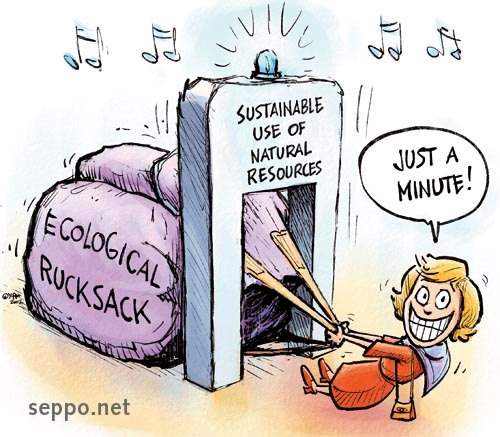Nature’s Grammar Talk: A Lesson on Graded Language Learning For IX/X Graders*
N Shesha Prasad, India
*SDG Goal No 12 – Responsible Consumption and Production
N Shesha Prasad has been working as PGT of English in Kendriya Vidyalaya Sangathan, New Delhi, India and is currently posted at Kendriya Vidyalaya AFS, Begumpet, Hyderabad Telangana, India. She takes an active participation in teacher training programs and has been involved in the correction of CBSE 12 grade Board answer scripts as a Head Examiner for four years. She writes small poems and articles for various publications in India. E-mail: nsheshap@gmail.com
Menu
Introduction
Nature’s grammar talk
Activity 1: Spot the differences
Activity 2: One minute talks
Activity 3: Poster making and slogan writing
Nurturing responsible young adults
Activity 1
Activity 2
Activity 3
Advanced learners
Activity 1
Activity 2
Activity 3
Activity 4
In her essay “Journey to the end of the World”, Tishani Doshi raises the pertinent issue of ‘the human tendency to be blasé about Global Warming while sitting in the comfort zone of our respective latitude and longitude, but realizing the reality of the threat to the mankind when confronted with the retreating glaciers and collapsing ice shelves at close quarters’.
Her message is simple. Actions speak louder than words. Holding seminars, conferences and organizing campaigns will do little good. Fostering a new understanding and respect for our planet should begin early and begin right.
Developing an eco-friendly attitude, nurturing a healthy regard for Mother Nature and mother earth is only possible when we feel the repercussions. Don’t they say that only the wearer knows where the shoe pinches? As language teachers we have abundant activities and ways of letting the legendary shoe pinch our students. The pinching of the shoe would usher in the much desired habits.
Here is a chapter designed to foster eco-friendly attitude among the learners along with honing their linguistic abilities.
Activities that seemingly work on the language but re organizes the thought processes of the learners to mold responsible future citizens with a protective attitude towards Mother Earth and its resources and a burning desire to act and preserve.
A Lesson on Graded Language Learning For IX/X Graders
Learning objectives.
- To strengthen learner’s basic concepts of English Grammar.
- To Sharpen the LSRW skills of leaners.
- To fire the creative abilities of the learners.
- To inculcate eco-friendly habits in the learners.
- To instill Environmental values in the learners
- To enable the learner realize his /her moral obligations towards Mother Earth.
Sensitizing the learners
The following set of activities is designed to achieve twin goals of building language while encouraging their awareness of the dwindling resources and their repercussions on the human beings.
The learners should be presented with a set of before and after pictures with questionnaires to promote their observation and speaking skills. The pictures should be carefully selected to cover a wide range of depleting resources to put the message across to the learners. For example







After the spot the differences activity, the teacher could take up a group discussion to bring out the underlying similarity that weaves all the pictures together, the reasons for the changes and the effect on human life. If possible, corrective measures to be taken could also be discussed.
The teacher may arrange one minute talks using the following pictures as cues.



Once again this exercise can be followed by a group discussion on the lessons that could be learnt from the pictures. Not only will the children learn to present their cases with lucidity and richness of content but also become quite aware of usefulness of responsible consumption.
The learners could be encouraged to practice poster making (on the lines of the pictures presented) and supplement the posters with appropriate slogans, e.g.:

- Stash the trash.
- Do not litter your surroundings.

Once the basic language foundation is laid, the creativity and richness of the language can be nurtured through advanced activities. These could include visual and verbal inputs that deal with language as well as environmental issues.
Listen to the Song “Wake Up to Reality by Alicia Grant” carefully and complete the exercise as you listen.
https://www.youtube.com/watch?v=0vkoY-9lM-U
Exercise 1
Cheryl Smith, a Ninth Grader in Mexico, who happened to hear the song, has written down some of the lines. To paint a clearer picture of the Lyricist’s message, she tries to arrange them in the order they should occur in reality. Arrange the lines for her in a sequence that they should have occurred in reality using the tense as the basis for your order.
- The earth emerges into view
- Harmony and balance existed long ago
- Man has been unkind
- The earth needs our help
- The earth is fading fast
- The earth started out as a paradise for all of us to share
- It has all been sacrificed by unaware people.
- Industries advance.
- It’s time to make a change
Exercise 2
Read the last line again. Notice the words in italics. Do you know that it is a special type of verb called “The Infinitive” under the category of a yet another special verb called ‘The Non Finite?” Non Finites are verbs that do not change whenever there is a change of tense, number or person. Listen to the song again and list such Infinitives.
Exercise 3
Use the Nonfinites- the infinitive and the Gerund to encourage eco-friendly habits in your school mates through slogans to be displayed in various corners of your school.
Unnati, a Ninth grader from Kendriya Vidyalaya AFS Begumpet, Hyderabad, India, has completed the exercise to the utmost satisfaction of her teacher. She wishes to know what she could do to protect Mother Earth. Her teacher Mrs. Prasad has shown her the following video and asked her to give a talk on Sustainable Development in the morning assembly stressing on the role of students in the protection of the environment. Watch the Video and write the speech for her in 100 words.
https://www.youtube.com/watch?v=gTamnlXbgqc
Unnati was so impressed with the idea of sustainable development that she started collecting articles on the topic. She came across a short story called “The Giving Tree” on the usefulness of trees. She shared the story with Sarah Jordon, her Facebook friend from New Jersey. Sarah was so impressed by the story that she decides to write a letter to the editor of the Newspaper ‘The Daily Journal of Vineland’ stressing on the need to preserve trees. Read the following story and write the letter for her in 100 words.
The Giving Tree (http://www.moralstories.org/the-giving-tree )
Once upon a time, there lived a big mango tree. A little boy loved to come and play around it every day. He climbed to the tree top, ate the mangoes, and took a nap under the shadow… He loved the tree and the tree loved to play with him. Time went by, the little boy grew, and he no longer played around the tree.
One day, the boy came back to the tree with a sad look on his face. “Come and play with me,” the tree asked the boy. “I am no longer a kid, I don’t play around trees anymore.” The boy replied, “I want toys. I need money to buy them.” “Sorry, I don’t have money… but you can pick all my mangoes and sell them so you will have money.” The boy was so excited. He picked all the mangoes on the tree and left happily. The boy didn’t come back. The tree was sad.
One day, the boy grown into a man returned. The tree was so excited. “Come and play with me,” the tree said. “I don’t have time to play. I have to work for my family. We need a house for shelter. Can you help me?” “Sorry, I don’t have a house, but you can chop off my branches to build your house.” So the man cut all the branches off the tree and left happily. The tree was glad to see him happy but the boy didn’t come back afterward. The tree was again lonely and sad.
One hot summer day, the man returned and the tree was delighted. “Come and play with me!” The tree said. “I am sad and getting old. I want to go sailing to relax myself. Can you give me a boat?” “Use my trunk to build your boat. You can sail far away and be happy.” So the man cut the tree trunk to make a boat. He went sailing and didn’t come back for a long time.
Finally, the man returned after he had been gone for so many years. “Sorry, my boy, but I don’t have anything for you anymore. No more mangoes to give you.” The tree said. “I don’t have teeth to bite,” the man replied. “No more trunk for you to climb on.” “I am too old for that now,” the man said.
“I really can’t give you anything, the only thing left is my dying roots,” the tree said with sadness. “I don’t need much now, just a place to rest. I am tired after all these years,” the man replied. “Good! Old tree roots are the best place to lean on and rest. Come sit down with me and rest.” The boy sat down and the tree was glad and smiled.
Homework
Vachan, who has participated in Mary’s talk show is a good artist. He prepares a poster on ‘Ecofriendly Practices’ to be put up in his School Notice Board. Design the Poster for him.



Unnati, a Ninth grader from Kendriya Vidyalaya AFS Begumpet, Hyderabad, India, has completed the exercise to the utmost satisfaction of her teacher. She wishes to know what she could do to protect Mother Earth. Her teacher Mrs. Prasad has shown her the following video and asked her to give a talk on Sustainable Development in the morning assembly stressing on the role of students in the protection of the environment. Watch the Video and write the speech for her in 100 words.
www.youtube.com/watch?v=gTamnlXbgqc
Unnati was so impressed with the idea of sustainable development that she started collecting articles on the topic. She came across a short story called “The Giving Tree” on the usefulness of trees. She shared the story with Sarah Jordon, her Facebook friend from New Jersey. Sarah was so impressed by the story that she decides to write a letter to the editor of the Newspaper ‘The Daily Journal of Vineland’ stressing on the need to preserve trees. Read the following story and write the letter for her in 100 words.
The Giving Tree (www.moralstories.org/the-giving-tree)
Once upon a time, there lived a big mango tree. A little boy loved to come and play around it every day. He climbed to the tree top, ate the mangoes, and took a nap under the shadow… He loved the tree and the tree loved to play with him. Time went by, the little boy grew, and he no longer played around the tree.
One day, the boy came back to the tree with a sad look on his face. “Come and play with me,” the tree asked the boy. “I am no longer a kid, I don’t play around trees anymore.” The boy replied, “I want toys. I need money to buy them.” “Sorry, I don’t have money… but you can pick all my mangoes and sell them so you will have money.” The boy was so excited. He picked all the mangoes on the tree and left happily. The boy didn’t come back. The tree was sad.
One day, the boy grown into a man returned. The tree was so excited. “Come and play with me,” the tree said. “I don’t have time to play. I have to work for my family. We need a house for shelter. Can you help me?” “Sorry, I don’t have a house, but you can chop off my branches to build your house.” So the man cut all the branches off the tree and left happily. The tree was glad to see him happy but the boy didn’t come back afterward. The tree was again lonely and sad.
One hot summer day, the man returned and the tree was delighted. “Come and play with me!” The tree said. “I am sad and getting old. I want to go sailing to relax myself. Can you give me a boat?” “Use my trunk to build your boat. You can sail far away and be happy.” So the man cut the tree trunk to make a boat. He went sailing and didn’t come back for a long time.
Finally, the man returned after he had been gone for so many years. “Sorry, my boy, but I don’t have anything for you anymore. No more mangoes to give you.” The tree said. “I don’t have teeth to bite,” the man replied. “No more trunk for you to climb on.” “I am too old for that now,” the man said.
“I really can’t give you anything, the only thing left is my dying roots,” the tree said with sadness. “I don’t need much now, just a place to rest. I am tired after all these years,” the man replied. “Good! Old tree roots are the best place to lean on and rest. Come sit down with me and rest.” The boy sat down and the tree was glad and smiled.
Homework
Vachan, who has participated in Mary’s talk show is a good artist. He prepares a poster on ‘Ecofriendly Practices’ to be put up in his School Notice Board. Design the Poster for him.
By the time the learners progress to this level, they acquire the ability to function independently and tap their reservoirs of creativity and language. Hence advanced exercises like talk shows, poetry/story writing, cartoon making can be encouraged.
You are Mary Hampton, School Head Girl of The Mulberry Bush School, England. Your Teacher Mrs. McDonald has completed the Chapter on “Nature’s Grammar Talk.” She has instructed you to arrange a Talk Show on “Responsible Consumption.” Plan and present the Talk Show in your class.
Weave a short story portraying the ungratefulness of man towards Mother Earth. You may use the picture as a base.

Bring out the anger and agony of Mother earth (as shown in the picture) in the form of a poem.

The children could be divided into groups and sent to nearby settlements to survey the amount of water supplied to them daily, the amount of water required, the problems that they encounter. They could later be taken to the Department of water supply and learn their side of the coin. This could be followed by a group discussion in the class on the ways and means of meeting the demand with the supply. The learners could then get a detailed report on the data collected along with the suggestions arrived at published in the newspaper for wider publicity and better results.

Please check the Teaching Multiple Intelligences course at Pilgrims website.
Please check the Methodology & Language for Primary course at Pilgrims website.
Please check the Methodology & Language for Secondary course at Pilgrims website.


|